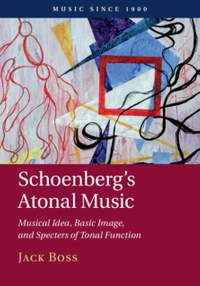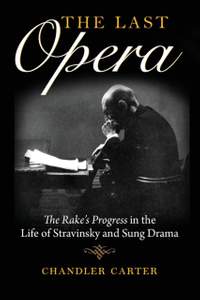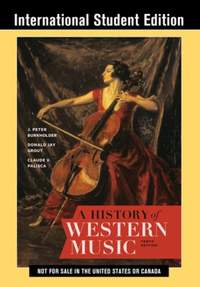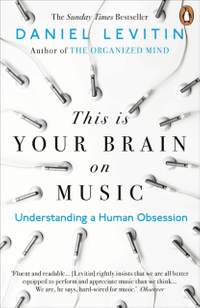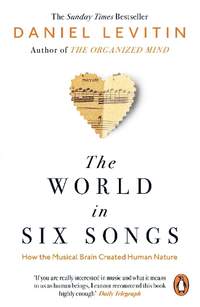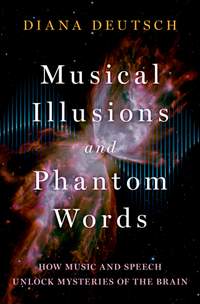New Publications,
New Music Book Publications - 8th July 2019
 Welcome to our latest selection of new music books. Our picks this time round include a lavishly-illustrated history of Decca Records; conversations with film composer Ennio Morricone; the first English-language biography of Respighi; an analysis of the atonal music of Arnold Schoenberg; a new edition of Donald Jay Grout's classic textbook on the history of Western music; a study of Beethoven's impact on writers such as E.M. Forster and Viriginia Woolf; an exploration of the role of flamenco in the construction of Spanish national identity; and reissues of books by Daniel Levitin on the relationship between music and the brain.
Welcome to our latest selection of new music books. Our picks this time round include a lavishly-illustrated history of Decca Records; conversations with film composer Ennio Morricone; the first English-language biography of Respighi; an analysis of the atonal music of Arnold Schoenberg; a new edition of Donald Jay Grout's classic textbook on the history of Western music; a study of Beethoven's impact on writers such as E.M. Forster and Viriginia Woolf; an exploration of the role of flamenco in the construction of Spanish national identity; and reissues of books by Daniel Levitin on the relationship between music and the brain.
Throughout these conversations, legendary film composer Ennio Morricone offers an exhaustive account of his life, from his early years of study to collaborations with the most important directors including Leone, Bertolucci, Pasolini, De Palma, Almodóvar, Polanski and Tarantino. In the process, he unveils the curious relationship that links music and images in cinema, as well as the creative urgency at the foundation of his experimentations with absolute music.
Available Format: Book
This is the first English-language biography of Ottorino Respighi, documenting his rise to fame and offering a fascinating insight into the active lifestyle of a musician who made an important contribution to the revival of interest in early music. It also takes a closer look at Respighi's associations with eminent figures such as Toscanini, Diaghilev, Gabriele D'Annunzio and even Albert Einstein.
Available Format: Book
Schoenberg's Atonal Music: Musical Idea, Basic Image, and Specters of Tonal Function
Jack Boss; Cambridge University Press
This book shows how Schoenberg's atonal music can be understood in terms of successions of pitch and rhythmic motives and pitch-class sets that flesh out the large frameworks of “musical idea” and “basic image”. It contains close readings of representative works, including the Op. 11 and Op. 19 Piano Pieces, the monodrama Erwartung, and Pierrot lunaire.
Available Format: Book
Schoenberg's Correspondence With Alma Mahler
Elizabeth Keathley & Marilyn McCoy (editors); Oxford University Press
This volume documents a friendship beginning in fin-de-siècle Vienna and ending in 1950s Los Angeles. It is the first English-language edition of the complete extant correspondence, in new translations from the original German. These often quite candid letters afford readers a fascinating glimpse into the personalities, ideologies, institutions, protocols, and aesthetics of early twentieth-century European music culture.
Available Format: Book
The Last Opera: The Rake's Progress in the Life of Stravinsky and Sung Drama
Chandler Carter; Indiana University Press
Between 1947 and 1951, Igor Stravinsky and W. H. Auden collaborated on the opera The Rake's Progress. Few perceived that they were confronting the central crisis of the Modern age, dramatising the very limits of human will. Chandler Carter explores the opera's libretto and music, positioning it as a focal point in Stravinsky's artistic journey, and revealing how it fits into the larger narrative of the history of opera.
Available Format: Book
Grout's definitive survey of Western music is now available in its tenth edition. Carefully informed by feedback from dozens of scholars, it weaves a compelling story of people, their choices and the western musical tradition that emerged. The focus throughout is on understanding the connections between music and its context - whether musical, cultural or historical.
Available Format: Book
Published in three volumes, this companion anthology to Donald Jay Grout's classic textbook provides the scores for every major work discussed in the text, with 229 works in all. This edition offers thirty-six new or expanded selections, from medieval chant examples to 21st-century works by Caroline Shaw and Thomas Adès.
Available Format: Book
This study focuses on how early twentieth-century writers - chief among them E. M. Forster, Aldous Huxley, Wyndham Lewis, Dorothy Richardson, Rebecca West, and Virginia Woolf - profited from the representational conventions associated in the nineteenth century and beyond with Beethovenian culture. The emphasis is on the ways in which understanding Beethoven's music influenced experimental writing up to 1930.
Available Format: Book
A new edition of the bestselling book which examines how humans experience music and unravels the mystery of our perennial love affair with it. Using examples from Bach to the Beatles, Levitin reveals the role of music in human evolution, shows how our musical preferences begin to form even before we are born, and explains why music can offer such an emotional experience.
Available Format: Book
Also available in a new edition is Levitin's illuminating study of how music has been instrumental in the evolution of language, thought and culture. Dividing the sum total of human musical achievement, from Beethoven to The Beatles, Busta Rhymes to Bach, into just six fundamental forms, Levitin demonstrates how music is at the core of what it means to be human.
Available Format: Book
Musical Illusions and Phantom Words: How Music and Speech Unlock Mysteries of the Brain
Diana Deutsch; Oxford University Press
One of the world's leading experts on the psychology of music shows how illusions of music and speech have fundamentally altered thinking about the brain. These illusions show that people can differ strikingly in how they hear musical patterns - differences that reflect variations in brain organisation as well as influences of language on music perception.
Available Format: Book
The Oxford Handbook of Voice Studies
Katherine Meizel & Nina Sun Eidsheim (editors); Oxford University Press
We interact daily with voices that emit from alarm systems, cars, telephones, and digital assistants such as Alexa. This book looks to answer the seemingly innocuous question: what is voice? From a range of disciplines including the humanities, biology, culture, and technology studies, contributors draw on various methodologies to address the uses, meanings, practices, theories, methods, and sounds of the voice.
Available Format: Book
Flamenco Nation: The Construction of Spanish National Identity
Sandie Eleanor Holguin; University of Wisconsin Press
How did flamenco become so inexorably tied to the culture of Spain? Sandie Holguin focuses on the history of the form and how reactions to performances transformed over the course of two centuries. This study reveals not only how Spain designed and promoted its own symbol but also how this cultural form took on a life of its own.
Available Format: Book




